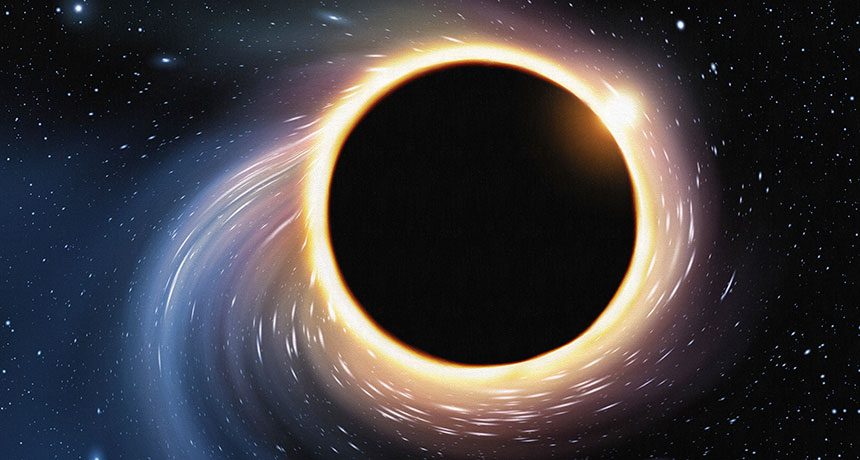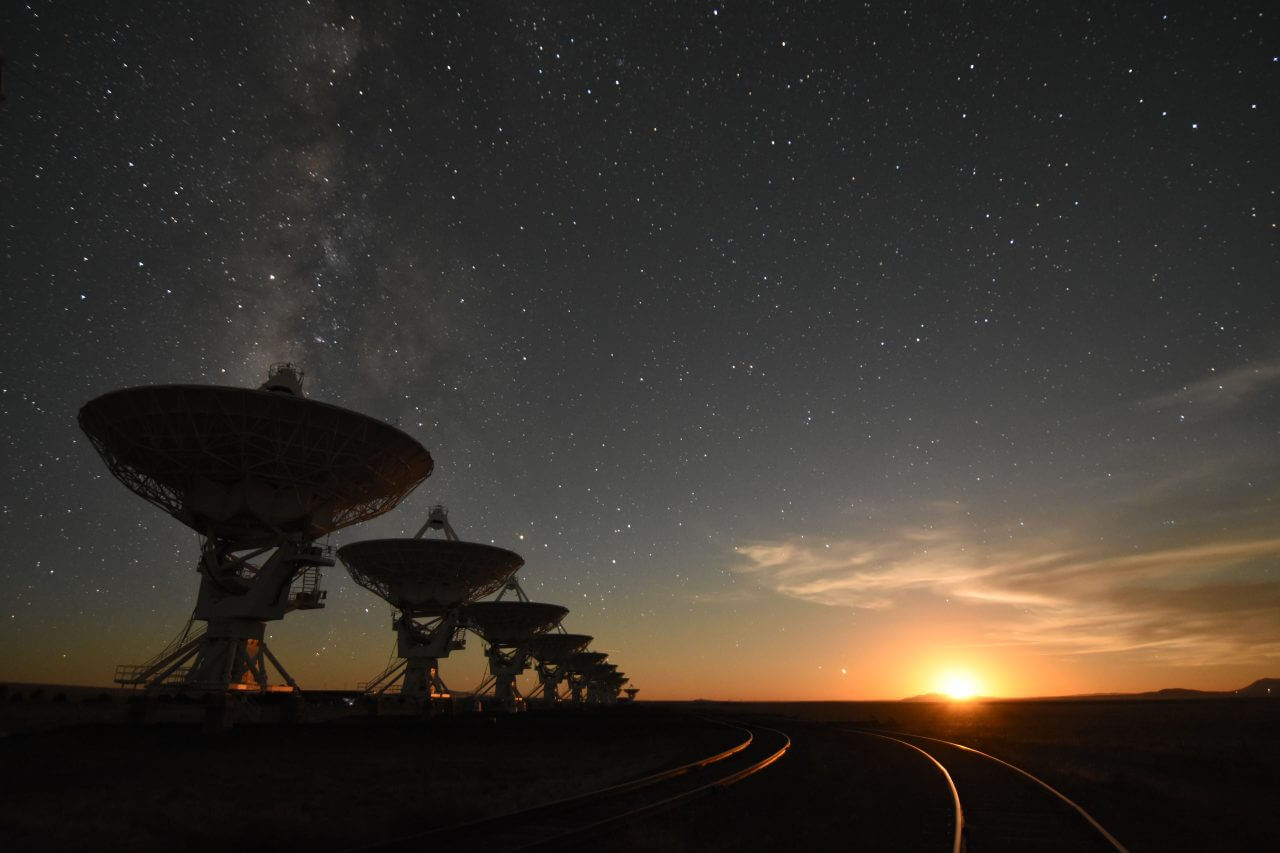What is darkness and what is its speed?
 Source:
Source:
The Speed of light is one of the most important constants in physics. The first estimate of the speed of light given by the Danish astronomer Olaf Roemer in 1676. However, scientist who found that light sets an upper limit on attainable speed in our Universe, equal to almost 300,000 kilometers per second, it was albert Einstein. And yet, according to the Einstein's theory, everything in this Universe is relative, including the movement. This, in turn, forces us to ask the logical question: what is the speed of opposites of light and darkness?
We are not the first who asks this question, but the portal Gizmodo decided deeper to understand it and on this occasion turned to one of the most respected and famous scholars, researchers, theorists, experts on black holes and quantum physics. Interestingly, all of them, there is no consensus on this. Some believe that the darkness may have the same speed as light. Others believe that it can be infinitely slower. Others believe that everything will depend on the perspective with which you look at this question.
theGeorge Musser
editor of the magazines Scientific American and Nautilus, author of "Spooky action at a distance: a phenomenon pereosmyslenie concepts of space and time. The meaning of the phenomenon in the theory of black holes, the Big Bang theory and the theory of everything" and "the Complete guide to string theory for idiots"
the"the Speed of darkness? The simple answer – the speed of darkness is equal to light velocity. "Turn off" the Sun and our sky will be dark in about eight minutes after this point. But it's a boring answer! No, but really! First, what we used to call "light speed" is the speed of propagation, and it is not always the deciding factor. The shadow falling across the landscape, discarded object. And the peculiarity of these objects and distance from them, will determine how fast it will fall.
For Example, a rotating searchlight beacon lights-up the environment at regular intervals. However, the relative dimming speed of the environment increases with increasing distance to the lighthouse. If you move away from the lighthouse far enough away, the shadow will overtake you faster than the speed of light. The same thing, such as occurs in neutron stars in space. In other words, in this case, the speed of light will only mean delay. Even if the beacon will be sent directly to you, you will see the light immediately, but with some delay. However, this does not affect the course of events that you will see while on your place.
But is there such a thing as darkness? More precisely, the concept is there, but is there the phenomenon? Even if you "turn off" the Sun, the Earth will plunge into total darkness besprovodnaya. The light from stars, nebulae, and even the Big Bang itself will cover your sky in this case. The planet itself and all that therein is, including our bodies, also radiate light. And it will be seen in the infrared range. Even if you somehow found a way to "turn off" the Sun, even in this case it will emit a certain level of illumination almost forever. At your age and the ages will be enough for sure. That is, until we have an opportunity to see, we'll see. None of the optical sensor is unable to determine the total darkness, because even if there are no light sources available quantum fluctuations will also produce very light flashes of light. Or take black holes are the darkest of the alleged objects. Even they are able to emit a certain percentage of light, according to some theories. In physics, in contrast to the sphere of interpersonal relations, the light always wins the darkness.
The Darkness is not a physical category, it is rather a relative condition. Even so. This is a subjective perception of the state. Photons can be reflected, can not be reflected, retinal cells can start the process of working memory, but can not explain the subjective feeling of darkness, as well as the wave cannot be represented by something more than our experience of observing color or sound. Our subjective experience changes from time to time, but separately taken part of this experience is timeless. In this sense, we can say that the darkness itself has no speed.
What is the rate in the General sense? And whether she did? It presupposes the existence of a space in which it can be measured. However, many scientists working with quantum physics — a world where the usual concepts of conventional physics are often useless — I believe that in itself, space is one of the derivatives of the more fundamental level of reality where there are no such concepts as position, distance or the same speed".
AVI Loeb
Professor of astrophysics at Harvard University, founder of the project exploring black holes Black Hole Initiative (BHI)
the"Pull to the center of a black hole matter reaches a speed close to the speed of light. Everything that falls within the so-called event horizon of black holes, has no way to escape. Even the light forever sealed inside the event horizon. Taking this into account, black holes can be considered as a kind of prison of eternal darkness. But it is not.
A Star like our Sun, can be "spaghettification" into the gas stream, pass it near a massive black hole, like the one that is in the center of our milky Way galaxy and whose mass is equal to 6 billion solar masses.
However, if you fall into a black hole matter may create between friction and heat. The end result of this friction becomes radiation. If the rate of accretion (the process of increment of mass) will be quite large, the pressure of the outgoing radiation will potentially be able to protect additional surrounding matter from falling over. Many of the most massive black holes in the Universe with the mass of billion suns, there is a maximum possible rate of accretion».
Neil Degrasse Tyson
Astrophysicist, doctor of philosophy in physics, writer, popularizer of science, Director of the Hayden planetarium at the American Museum of natural history in Manhattan. Presenter of popular science series "Cosmos: space and time"
the"the Speed of darkness, so... given the fact that the darkness itself is the result of the termination of the light? If the speed of light is a constant, the speed of darkness is the opposite of constant speed of light. If light is a vector, it has magnitude and direction,... to mention a negative value, we will be talking about his back. Darkness in this case is the reverse direction, and not straight. I would say that the darkness has the opposite negative value of the speed of light."
Sarah Caudill
a Doctor of science from the Center for the study of gravitation, cosmology and astrophysics Leonard E. Parker University of Wisconsin-Milwaukee
the«the gravity of black holes is so great that not even light can escape, once it gets in the radius of its event horizon – the invisible boundaries, creating a point of no return. Since black holes have such strong gravity, that the observations conducted outside of this strong gravitational field, will influence the effect of time dilation.
Suppose that the distance from the black hole is an observer who sees, like a black hole falls a glowing object. From the perspective of the observer, the light will first slow down your speed and then "go out", becoming so dim that it cannot be seen. The observer can't even see the object cross the event horizon.
If we consider the situation from the point of view of matter falling into the black hole. Now imagine a black hole surrounded by a cloud of glowing gas. This cloud is formed ripped apart a star passes too close to the black hole. This gas cloud will be presented in the form of a flattened disk, also called the accretion disc. So, the gas in this disk will eventually be completely absorbed by the black hole, but this will not happen immediately.
The fact that there is a speed limit, depending on the force of radiation pressure superheated gas, which would resist the action of internal gravity itself a black hole. In the end, once all the gas is absorbed by the black hole, its size will increase. For example, given a black hole whose initial mass is 10 times greater than the mass of our Sun, and the rate of accretion of mass will reach the maximum limit (called the Eddington limit), then about a billion years the mass of this black hole reaches a mass 100 million times greater than the mass of our Sun."
David Reitz
Scientific Director of Laser-interferometric gravitational-wave Observatory (LIGO)
"basically, everything will depend on whether you are the matter that absorbed the endless abyss of a black hole, or you are far enough away from the scene and are dispassionate observer of the events of the fall someone or something else into this very abyss. If you're unlucky and you have to be in place first, then the speed will be very high. Most likely, it will go on the indicators close to the speed of light.
If you were on the second place and are far enough from the black hole, the speed at which will be absorbed by matter the black hole will seem considerably reduced through the effect of gravitational time dilation. According to him, "watch" under the influence of the gravitational field go slower, and under the influence of very strong gravitational fields – even slower that would be fair as time approaches the event horizon...
Recommended
Can genes create the perfect diet for you?
Diet on genotype can be a way out for many, but it still has a lot of questions Don't know what to do to lose weight? DNA tests promise to help you with this. They will be able to develop the most individual diet, because for this they will use the m...
How many extraterrestrial civilizations can exist nearby?
If aliens exist, why don't we "hear" them? In the 12th episode of Cosmos, which aired on December 14, 1980, co-author and host Carl Sagan introduced viewers to the same equation of astronomer Frank Drake. Using it, he calculated the potential number ...
Why does the most poisonous plant in the world cause severe pain?
The pain caused to humans by the Gimpi-gympie plant can drive him crazy Many people consider Australia a very dangerous place full of poisonous creatures. And this is a perfectly correct idea, because this continent literally wants to kill everyone w...
Related News
Japanese scientists have grown a pancreas of the mouse in the body of rats
the Cultivation of living artificial organs — really a difficult task. If some 5-10 years ago it seemed almost impossible, but today science has made significant progress in this direction, and to grow new body looks a fanta...
Girl! Scientists were able to accurately determine the sex of the "mother dinosaur"
to Determine the sex of a dinosaur is not easy. From the point of view of the anatomy of the skeleton, the females and males of dinosaurs virtually identical. Form dinosaur bones does not help. As far as scientists know, the dinos...























Comments (0)
This article has no comment, be the first!